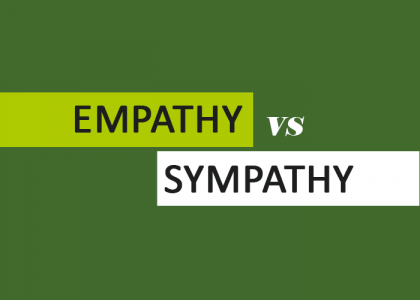Empathy vs. Sympathy – Do You Know the Difference?
At a recent conference, a group of firefighters were asked to explain the difference between empathy and sympathy. The responses were eloquent and thoughtful, but we liked this explanation best:
By the very nature of what first responders do, they are put in the position of dealing with death, fear, grief, confusion and even anger. The difference in just going through the process versus dealing compassionately with the complex situation may be the difference of having empathy or showing sympathy.
Drilling down even further, we discussed the actual definitions of each word:
- Empathy is a term we use for the ability to understand other people’s feelings as if we were having them ourselves.
- Empathy can also mean projecting our own feelings onto something or someone.
- Sympathy refers to the ability to take part in someone else’s feelings, mostly by feeling sorrowful about their misfortune.
Firefighters naturally have the ability to feel empathy toward their victims. They’ve lived through difficult times and seen things firsthand on more than one occasion.
Empathy may be a soft skill, but it’s a crucial one, especially when many fire departments are running EMS calls. Good fire departments will continue to be respected for their technical excellence, but great departments will couple that technical ability with compassionate service. Empathy is what will set the standard of best.
After all, when Mrs. Smith brings cookies to the fire station, it’s not because you got the IV on the first stick or prevented water damage during overhaul. It’s because she remembers how well you treated her and her loved ones. When someone is having one of their worst days, she will remember you for your empathy most of all. When someone needs help, you will exceed expectations only if you are empathetic.
A few tips to keep empathy top of mind:
- Listen first. Victims of disaster are emotional and need to be able to share their feelings.
- Connect with their feelings. You may have seen this many times; find a way to connect with them.
- Acknowledge their pain. – “Rarely can a response make something better. What makes something better is connection.”
Finally, it is important to not allow yourself to burnout or feel compassion fatigue. Lean on your brothers and sisters in the department, as well as trusted loved ones, for any struggles you may have with these emotions.
Sources:
https://www.grammarly.com/blog/empathy-sympathy/
https://emergencyreporting.com/blog/2016-03-firefighters-are-underrated/
https://medium.com/@lauraclick/want-to-be-more-empathetic-avoid-these-7-responses-21bb52d5d2ad

